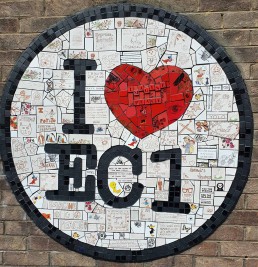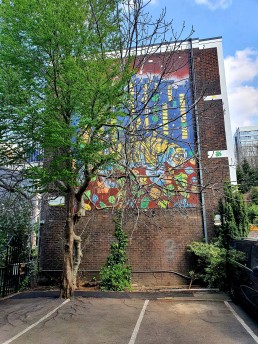Features | By Gemma Bradshaw
Celebrating different minds and different methods
From sharing the strengths and experiences of staff and students, to equipping staff with the all-important tools and resources they need to improve the accessibility of their content – City has worked hard this year to celebrate the differences in its community and the different methods we should all consider to empower and include every individual.
Strength and ‘intense joy’
Neurodiversity Celebration Week, which took place in March across the UK, is a worldwide initiative that challenges the stereotypes and misconceptions often associated with neurological differences. Beginning in 2018, the week was founded with an aim to change the narrative, transforming how neurodivergent people are perceived and supported, by recognising the many advantages of being neurodivergent.
City celebrated the week through events and activities, which included ‘myth busting’ facts on social media, networking opportunities with the Neurodiversity and Disability teams, a guided mindfulness walk, and free film screenings on campus.
Photos from the Mindfulness Walk taken by a member of staff
As part of the week, students were also encouraged to share the strengths that they feel their neurological differences bring to their course or career. A Speech and Language Therapy student shared:
“My strength is my creativity in problem solving and my empathy. I understand how clients feel when they go through assessments, like when I had my dyslexia assessment.”
Emmy Gregory, Departmental Secretary in The City Law School, who has diagnoses of Autism, ADHD, Bipolar Disorder and Generalised Anxiety Disorder, spoke about the strengths that autism and ADHD bring to their work and day-to-day life.
“Autism comes with a drive to get things right; to care about things that might not be important to other people. Integrity and honesty are important to us – which does also mean we can be a little blunt.
“ADHD has brought me an ability to grab things from all over my brain and pull them together. It means I can hyperfocus on projects.
“I also consider resilience to be one of my main strengths – resilience can be the force that keeps you going through the worst times. It can bring compassion when others are struggling, too.
“There’s also the joy! Autistic people often have intense interests and hobbies that bring an incredible amount of joy to us. It doesn’t always make sense to other people, but I genuinely think it’s the purest form of joy in the world.”
James Saward, Head of Student Health and Wellbeing at City, said: “Over the past year, it has been a pleasure to see the initiatives across City that have put neurodiversity on the map, and I’m hopeful for more to come next year!
“In celebrating our neurodiversity, we encourage others to come forward and share their stories and access the support available to them. At City, we embrace neurodiversity as a strength, and it has been great to see the contributions that our neurodivergent students and staff have made to our learning community.”
Making content accessible to all
This year, City held its first month-long programme of activities throughout May to celebrate Global Accessibility Awareness. Led by colleagues in City’s dedicated Digital Accessibility Working Group, the month focused on raising awareness of the work that can be done to make teaching and learning content more accessible to the City community.
The programme of events and activities included webinars with colleagues from City and external experts, as well as a series of Learning at City blog posts sharing accessibility advice and experiences. The Digital Accessibility team held training courses throughout the month to equip staff with the tools and guidance that they need to improve the inclusivity of their teaching and support, especially for neurodivergent and disabled students.
The Digital Accessibility team has also recently launched a new ‘Introduction to accessibility’ module, available on Moodle for all staff to complete. The interactive module includes information on mental health, cognition and neurodiversity, hearing, physical and motor skills and vision disabilities. Case studies are also integrated into the course, giving staff real, important insight into the lived experiences of our students.
Maria Kaffa, Assistant Educational Technologist and member of the Digital Accessibility Working Group, commented: “It has been an incredible year for digital accessibility at City. Our institution is developing its accessibility maturity in many ways, with a particular focus in making our teaching and learning activities more inclusive for everyone.
“We have launched the Blackboard Ally tool on Moodle, which provides accessibility checks for staff and alternative formats for students. Our network of accessibility champions has grown and our relationships with teams across City are strengthening. We have also progressed our training offering and support mechanisms for staff, by rolling out a workflow so staff can more easily reach our services.
“As we enter the next phase of our project, there are many things to look forward to. We are continuously embedding a sustainable approach to digital accessibility, and City’s institutional maturity and confidence will keep growing.
“Celebrating our students and staff is a priority, as well as delivering benefits in this area for all. It will be an exciting year ahead for sure!
City is continually striving to improve the experiences of all of its staff and students and reviewing, changing and improving the University’s processes to contribute to this.


